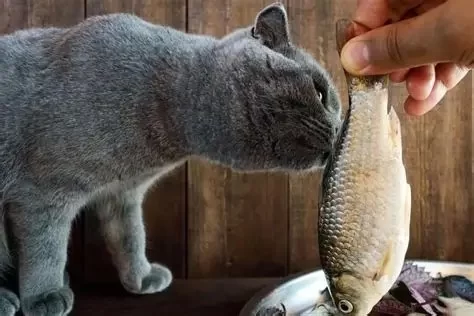Can Cats Eat Mackerel? A Guide to Safely Feeding Fish to Your Feline Friend
- Overview of Mackerel
- Nutritional Benefits of Mackerel for Cats
- Potential Risks of Feeding Mackerel to Cats
- How to Safely Introduce Mackerel to Your Cat's Diet
- Alternative Fish Options for Cats
- When to Call the Vet
- Conclusion and Final Tips
1. Can Cats Eat Mackerel? (Introduction)
Mackerel is a nutritious fish that many people enjoy. However, when it comes to feeding your cat mackerel, caution is needed. While mackerel can offer several health benefits, it also has some risks for your feline companion. This article explores how to safely introduce mackerel into your cat’s diet and which precautions to take.
2. Nutritional Benefits of Mackerel for Cats
Mackerel is rich in omega-3 fatty acids, which can promote a shiny coat and support joint health. It’s also an excellent source of high-quality protein, which is essential for your cat’s growth, muscle development, and overall well-being.
3. Potential Risks of Feeding Mackerel to Cats
Despite its benefits, mackerel also has some downsides. The high sodium content can lead to dehydration and kidney problems if fed in large amounts. Additionally, mackerel may contain mercury, which could accumulate over time and affect your cat’s health. Another concern is the bones in fish, which could pose a choking hazard or damage your cat’s digestive system.
4. How to Safely Introduce Mackerel to Your Cat's Diet
If you decide to feed your cat mackerel, it’s important to do so in moderation. Always serve small portions and ensure the fish is deboned. Fresh mackerel is the better option, but if you use canned mackerel, make sure it’s packed in water and has no added salt.
5. Alternative Fish Options for Cats
While mackerel can be enjoyed in moderation, there are other fish options that are safer for cats. Salmon and tuna are great alternatives and offer similar benefits. Just like mackerel, these fish should be served without bones and in small amounts.
6. When to Call the Vet
If your cat shows signs of illness after eating fish, such as vomiting, diarrhea, or excessive drooling, it’s time to consult a veterinarian. Your vet can help assess your cat’s health and advise you on the best diet for their needs.
7. Conclusion and Final Tips
Mackerel can be a delicious treat for your cat, but it’s important to feed it in moderation and with caution. Make sure to consult with a veterinarian if you’re ever unsure about the best diet for your feline friend. For more information and personalized advice, visit Hidden Brook Veterinary.












